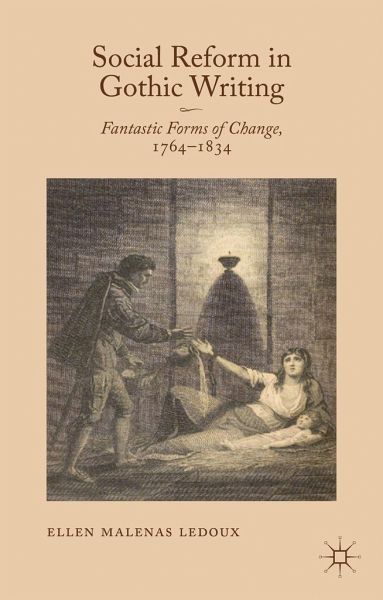
Social Reform in Gothic Writing
Fantastic Forms of Change, 1764-1834
Versandkostenfrei!
Versandfertig in 6-10 Tagen
38,99 €
inkl. MwSt.
Weitere Ausgaben:

PAYBACK Punkte
19 °P sammeln!
Social Reform in Gothic Writing provides a transatlantic view of the politically transformative power that Gothic texts effected during the Revolutionary era (1764-1834) through providing fresh readings of canonical and non-canonical writing in a wide variety of genres.














